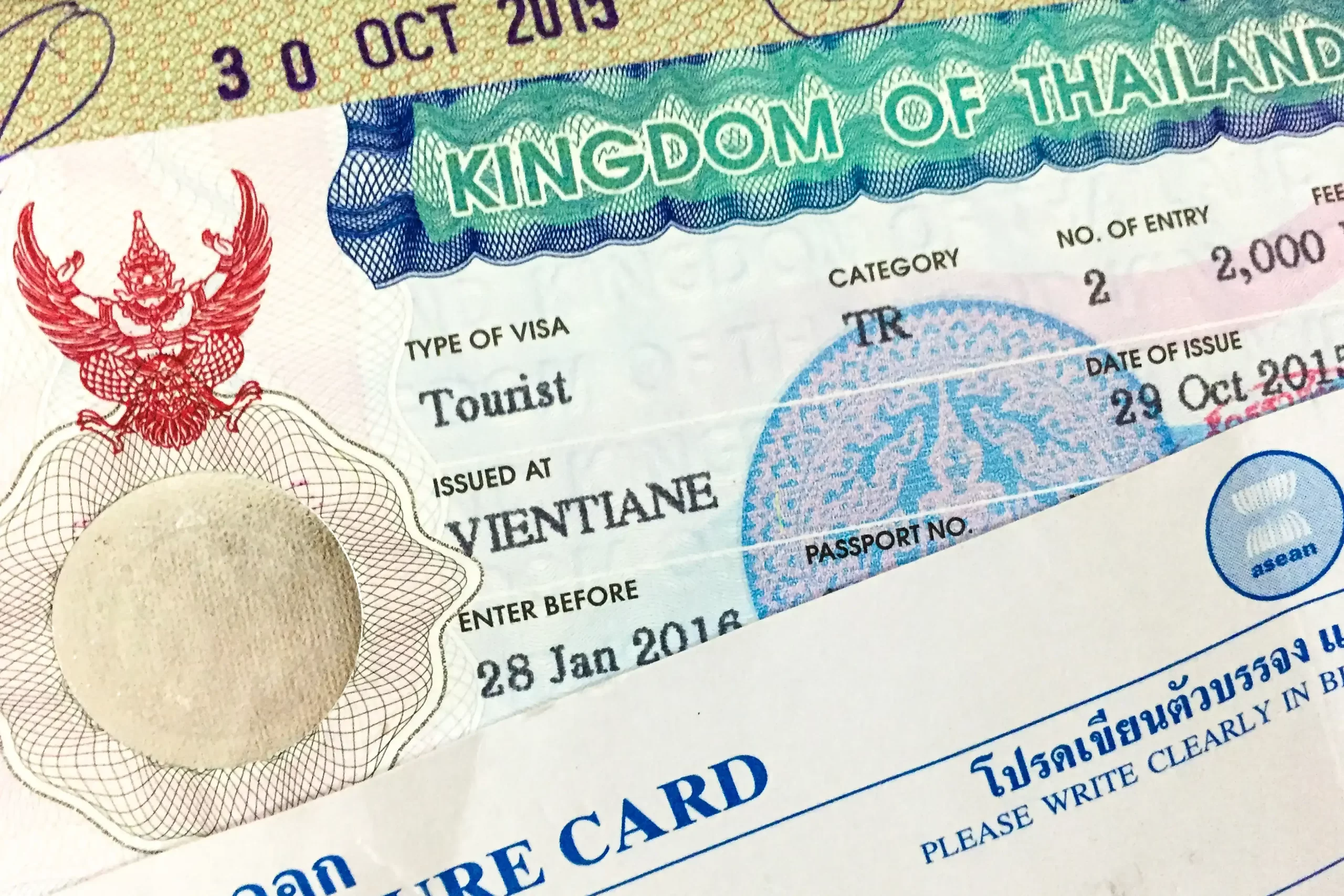Thailand offers a variety of tourist visa options for travelers, each tailored to different needs and lengths of stay. The primary options include the Single-Entry Tourist Visa (SETV), Multiple-Entry Tourist Visa (METV), and Visa Exemptions for certain nationalities. Thailand’s Immigration Bureau oversees these visas, ensuring that travelers adhere to the country’s tourism policies while providing flexibility for various travel needs.
1. Types of Thailand Tourist Visas
Each type of tourist visa provides distinct benefits depending on the traveler’s duration of stay and plans.
a) Visa Exemption
Nationals from around 64 countries can enter Thailand without a visa, under the visa exemption program. This allows for a stay of 30 days for most travelers, with a possible extension of 15 additional days upon application. This option is ideal for short vacations or spontaneous travel.
b) Single-Entry Tourist Visa (SETV)
The SETV allows travelers to stay for up to 60 days in Thailand with a single entry. It’s extendable by 30 days within Thailand, making it suitable for medium-length stays. SETVs are typically obtained from Thai embassies or consulates in the traveler’s home country.
c) Multiple-Entry Tourist Visa (METV)
The METV is designed for travelers who wish to enter Thailand multiple times within a six-month period. Each stay can last up to 60 days per entry, allowing for an extended stay with flexibility. It is ideal for people exploring other nearby countries and returning to Thailand within the visa validity period.
2. Eligibility and Requirements for Each Visa Type
Each visa type has specific eligibility requirements, depending on nationality, financial proof, and travel plans.
- Visa Exemption Requirements: Travelers must have a passport valid for at least six months and a confirmed outbound ticket.
- SETV Requirements: Generally requires proof of THB 20,000 (or equivalent) in funds, accommodation proof, and travel itinerary.
- METV Requirements: Requires higher financial proof, usually around THB 200,000 in a bank account for six months, as well as documentation of travel plans and confirmed accommodation in Thailand.
Each visa also has an application fee, varying by location and currency, which is non-refundable.
3. Application Process
The application process involves gathering documents, submitting applications at embassies or consulates, and attending visa interviews, if required.
a) Documents Required
- Visa Application Form: Completed and signed.
- Passport: With at least six months’ validity.
- Photographs: Passport-sized, meeting Thai visa requirements.
- Financial Proof: Bank statements or equivalent, proving sufficient funds.
- Travel Itinerary: Including return tickets and accommodation reservations.
b) Submission and Approval
Applications are generally submitted in-person or by mail to Thai embassies or consulates. Processing times vary but typically take two to five business days.
4. Extensions and Overstay Regulations
Travelers wishing to extend their stay can apply for a 30-day extension at Thai immigration offices. Extensions are granted at the discretion of Thai Immigration and incur a fee.
Overstaying a tourist visa leads to fines and potential bans. Fines are THB 500 per day, up to a maximum of THB 20,000. Overstaying beyond 90 days can result in a one-year entry ban.
5. COVID-19-Related Regulations and Long-Stay Options
Thailand has introduced flexible visa options in response to COVID-19, including the Special Tourist Visa (STV), allowing stays of up to 270 days. The Long-Term Resident (LTR) Visa also provides a pathway for tourists planning extended stays under specific conditions.
Conclusion
Thailand’s tourist visa options cater to various travel needs, from short visits to extended stays. By understanding the requirements, application processes, and options for extending stays, travelers can fully enjoy their time in Thailand while adhering to local regulations. For those with complex itineraries or planning multiple entries, consulting a local immigration expert can offer valuable insights.

